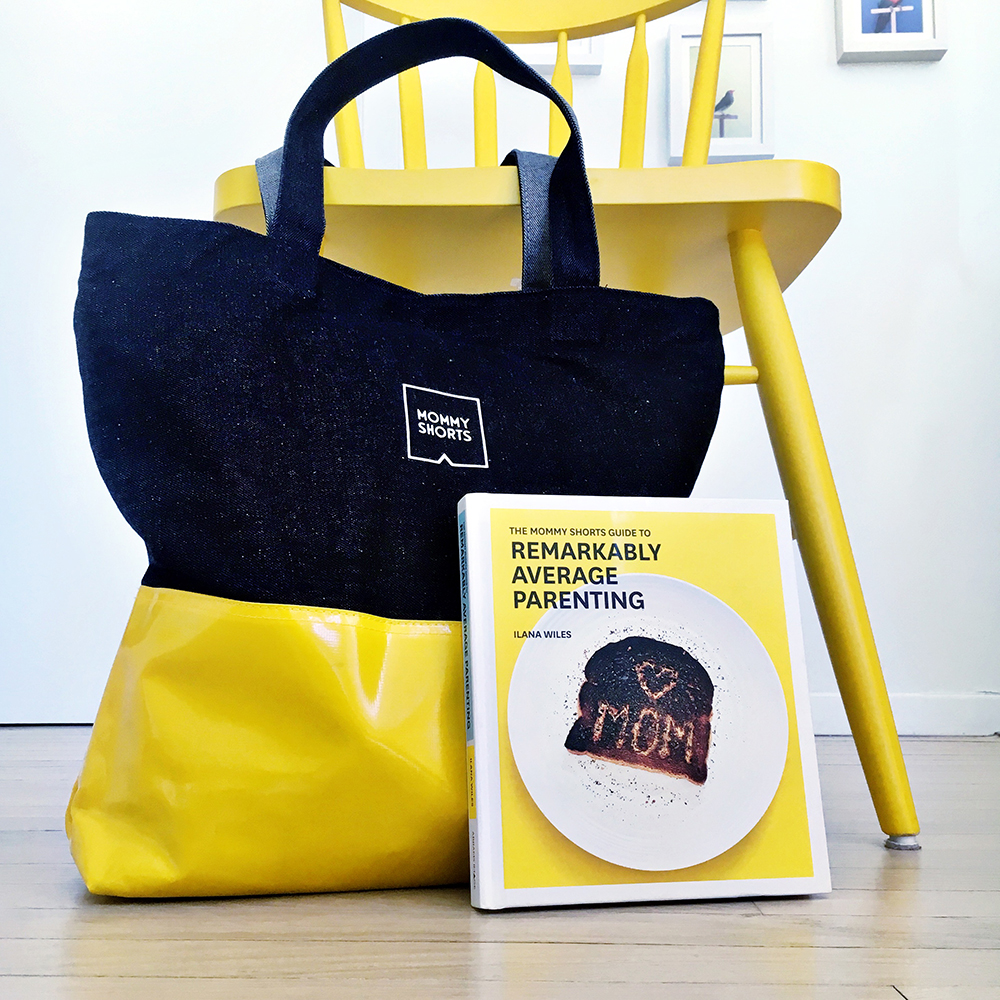As the mother of two daughters, I admit that I know very little about raising boys. But I have a lot of friends with boys (including my sister) and the thing I hear over and over from them— how do I make sure I am raising kind, gentle, human beings who respect girls and understand consent?
That’s a tough one, especially when societal gender norms are often working against us. As one mom recounted, even reading the story of Sleeping Beauty posed questionable issues. “Why is the prince allowed to kiss the girl while she is sleeping?”
The recent Senate hearings to appoint Brett Kavanaugh did not help either. Although, maybe seeing a grown man face consequences for alleged past misconduct is at the very least, a useful teaching moment. I don’t know what Kavanaugh’s appointment to the Supreme Court will mean for the future of women’s rights, but our goals for this generation of boys should remain the same. We want to instill the right values. We want them to talk to us. We want to give them the best tools to navigate gender stereotypes and power imbalances. We want to set clear boundaries for what is and is not acceptable. We want to protect them and we want them to understand their privilege.
I asked moms of boys in the Remarkably Average Parents facebook group to weigh in on how they are teaching consent. Their answers are awesome, touched on a variety of themes and made me realize that they can and should be applied to our girls as well. I know there are many nuggets that I have already started using with my 5 and 8yo daughters.
“No” has no room for ambiguity
“My son is in the 1st grade. I have been telling him since he was two to listen when people say ‘No’ or ‘Stop’. And conversely, if he says ‘No’ or ‘Stop’ during any kind of tickling or rough housing, I STOP. He needs to see that his words have value.” – Lisa
“We teach that no means no, yes means yes, and anything else means no. If words and actions are in conflict, pause and ask for clarification. You don’t get to pick the one you think the other person means, especially to your own advantage.” – Kerry
“I have 2 boys (5 and 7mo) and a girl (4). I remind them that if they want others to respect them when they say stop or no, they need to respect others wishes as well. If someone is no longer having fun, it’s time to stop. I also follow that rule— we only tickle when they are having fun.” – Nicia
“I have two boys and one girl. I tell them all, if someone says no, stop or starts crying, you stop. I think it’s important to point out non-verbal cues, too, which mostly started because mine are all young (under five) and at the time, they didn’t all speak.” – Alexis
“I have a now 19 year old stepson, who I have been bonus mom to since he was six. His entire life we have discussed boundaries, ‘no means no’, ‘no answer means no,’ and ‘my body, my rules.’ As soon as he started nearing the dating age, we ramped up how much we talked to him about sex and consent and exactly what that means. We have expressed that it doesn’t matter if she asks for it, or is enjoying it— if she says stop, you stop immediately, regardless of what else has transpired.” – Stephanie
Respect Everyone’s Space and Be Safe with their Bodies
“The message I try convey most to my five-year-old son is, ‘If you’re not both having fun, you need to stop.’ Your body belongs to you, but theirs belongs to them and you need to remember that. We have also used this with my ten-year-old daughter . We try to make them think beyond themselves.” – Rebecca
“I’ve been talking a lot about consent to my 6 year old recently. It stems mostly from respecting MY body, as he doesn’t listen when I tell him to stop climbing all over me. However, I’ve noticed that when his baby brother (13 months) starts to climb on HIM, he gets really annoyed. So we have been discussing how that makes him feel and how it makes me feel in the process. I think understanding scenarios of when touching makes him uncomfortable has helped him give others space.” – Amanda
“Teaching consent can be as simple as respecting his wishes when he says ‘no’ to a kiss or a hug from us. We enforce his answer with grandparents as well. He has body autonomy, so no forced hugs or kisses. When I’m done playing rough house with him, he needs to respect when Mommy says ‘no more.’ I’m hoping this carries on as he gets older.” – Katie
“My son has always been a very affectionate child, so we started practicing early that he always needs to ask before giving anyone a hug. Sometimes I even tell him ‘no’ when he asks me for a hug, just so he can practice saying okay. We talk a lot about his body being his and that he decides if he wants a hug, kiss, high five from people (including relatives- this is still hard for my mom). If we are leaving a relative’s house, we ask for him to say goodbye verbally but he doesn’t have to give a hug if he doesn’t want to.” – Mandy
Someone is allowed to change their mind about if they are having fun or not
“At my son’s 6th birthday party, he was hitting his cousin with a balloon. She told him to stop. He said, “But you said it was funny a minute ago.” I pulled him aside right then and said, “You know how when we’re having a tickle fight and you tell me to stop, I stop RIGHT AWAY? That’s because you have the right to decide what other people do to your body. If you aren’t having fun being tickled, it’s not my right to keep tickling you just because I am having fun. Just like with your cousin. She was having fun before, but she isn’t now and you have to respect her right not to be touched. Now, may I have a hug before you go back to playing with your friends?” He totally understood and after that even remembered to get consent before hugging the same cousin goodbye. – Elizabeth
“My husband and I have talked a lot about how to make sure my son understands consent beyond ‘no means no.’ He needs a ‘yes’ and it needs to be an ongoing ‘yes.’ He needs to keep checking in with his partner.” – Katie
Expressing your Emotions is a good thing regardless of gender
“At a young age, I think it’s most important to make my son aware of the fact that it’s okay for boys to have emotions. That it’s okay for him to cry and feel sensitive. I think one of the biggest issues in what went wrong with older generations of men is toxic masculinity.” – Nicole
“We acknowledge that emotions aren’t just for girls. He’s allowed to be sad, lonely, excited, whatever. When he talks about being a stay at home dad someday, we celebrate the idea the same as when he wants to be a police officer.” – LJ
“When I was pregnant with my daughter, we bought my son a stroller and a baby doll (yeah, the stroller was blue, but still) and he loved ‘Baby.’ When a relation of an in-law started on about how he would be soft and ‘girlie’ because we let him play with dolls, my husband told him that we had deliberately bought the baby for our 18 month-old to encourage nurturing behavior, and that of course my son wanted to push the stroller because whenever my husband was with us, HE pushed the stroller with his precious son inside. We were teaching him to be a caring person. I think that was a tipping point for my husband who realized that there will always be people who maintain dangerous stereotypes, that are not just dangerous to our girls, but dangerous to our boys because they can close off parts of themselves.” – Sarah
Take advantage of teaching moments
“After he watched The Little Mermaid for the first time, we talked about how the song ‘kiss the girl’ isn’t how dating works. If a guy wants to kiss a girl, he has to ask her first, and they have to agree. When we were reading the Usborne Romeo & Juliet Shakespeare book, and Romeo kisses Juliet without asking consent, I totally changed the scene and added a conversation where they talk about kissing before they kiss.” – Kara
“I remember my boys (8 and 6) were watching The Sandlot and we got to the part where Squint kisses Wendy by the pool. He pretends to be unconscious while she performs mouth to mouth and then he kisses her! She gets mad and he is then escorted out. My son asked me, ‘Why did she get mad and why does he have to leave?’ And it dawned on me that THIS is the perfect time to talk about consent!! I explained that it’s only ok to kiss a girl if she wants to be kissed and if you’ve asked her if that’s ok. I explained that because he did it without her permission it was very disrespectful of him.” – Saushan
Language is important, especially if it perpetuates stereotypes
“I never let my husband or anyone else use the phrases ‘toughen up,’ ‘stop crying’ or ‘sissy.’ Boys are allowed to have feelings and expressing them should not be associated with being weak or a girl thing.” – Erin
“I have a girl and boy. Since my daughter is the oldest, I have an unspoken rule that anything I say to her, I say to my son in similar circumstances. So, ‘don’t be bossy,’ ‘it’s okay to cry if you feel sad,’ and ‘what a pretty drawing!’ are all things I say to both my kids. We do this with actions too. When he wanted to wear a tutu to Home Depot at age four, I let him. When my daughter wanted her nails painted last weekend, my son got his too. And so did my husband.” – Natasha
“When my 7yo occasionally comments on boy verses girl clothes, toys, colors, etc., I try to tell him that they are JUST clothes, toys, and colors and yes, sometimes the people that make them think boys or girls will like them more but whoever likes them can and should enjoy them. We expect both our kids to be strong, but we have worked hard to avoid language like ‘man up,’ ‘throw like a girl,’ and so on. – LJ
“My son is five, and I’m really particular about not laying out different standards for girls vs. boys. i.e., ‘we don’t hit girls; we don’t talk that way with girls; etc.’ I think it sets a bad example that girls should be treated differently. Instead, we try to focus on treating people the way we want to be treated— giving people space when they want space, not hitting ANYONE, speaking in a kind/respectful way to everyone. I also try to quickly correct when he makes assumptions about ‘girl jobs’ vs. “’boy jobs.’ It usually starts an interesting discussion and he likes talking through those things.” – Mary Ann
Remove the mystery around body parts by using correct words
“I’ve been forthright with my son regarding private parts. While he was potty training, he saw me pee occasionally and I explained that everyone has a bladder and urethra and girls don’t have a penis. I figured if he learned the difference between girls and boys while exploring his own physiology, it might prevent awkward situations later. As for breasts, I was lucky enough to have my sister over while she was feeding her infant just at the stage where my son was getting curious about those, so now he knows them as the makers of baby milk.” – Ruby
“We use scientific words for body parts. ‘He touched my no no zone’ has VASTLY different meanings from one child to another. ‘She touched my penis’ does not vary. Children who are able to define body parts are less likely to be abused.” – Elizabeth
“I use proper terms. Penis, vagina, sex, oral sex, rape, consent, you get the picture.” – Kerry
Be a role model
“We have told our teenager that he is going to be a role model to his 6 year-old sister on how men are supposed to treat women. She will see him dating and how he talks to and about girls and she will learn from that. I think realizing that his little sister was watching was a major turning point for him.” – Stephanie
“One of the best ways to teach my boys is through example. My husband and I know that our boys will watch us as they grow. How we act as husband and wife will play a large role in showing him how a wife should be treated and how he should be treated by a woman as well.” – Erin
Teach kids to stand up for themselves
“When my kids come running to me about something someone did, I always ask, did you tell them no or say you didn’t like it? I think it’s important to teach children to speak up/stand up for themselves, too. I always say to ask the person to stop first. If they don’t, walk away or come get help.” – Alexis
Teach kids to stand up for others
“I make sure to push the ideal that girls and boys can do the same things. This way, girls aren’t seen as weak and helpless and, later in life, prey. Another ideal we push is to stand up for those who are being hurt by words or hands. If you see it, you are obligated to help, even if that means telling an adult in the area and being seen as tattling.” – Jillian
Don’t excuse bad behavior as “boys will be boys”
“I worry a lot about entitlement and the ‘boys will be boys’ attitude, so I make sure my son knows when his behavior is unacceptable and why. I make sure all behavior is addressed and discussed on a level he can understand with appropriate consequences. I don’t let things fly and I never excuse bad behavior because he’s a boy.” – Courtney
Make them understand the power imbalance
“I talk to my 13 year-old about respect and consent a lot. My mantra to him is ‘we don’t touch people without permission. Girls, boys, your sister….if anything in their words, tone, or body language even HINTS at no, you back off. Immediately.’ He’s 5’5” and 150 lbs. He could overtake someone easily. He needs to understand that, and I tell him just that. Not to inflate his head, but so he understands that if someone is uncomfortable in any way, it WILL BE his fault.” – Tara
“I’m clear that while no one is immune to being disrespected when it comes to consent, it is most commonly something that women have been the victims of with male perpetrators. It’s a culture that needs to be shifted so that consent and lack thereof is always respected in all scenarios.” – Kerry
“We’ve talked a lot about consent— not touching others’ bodies without their permission, stopping when you’re told “no,” etc., but I do think the conversations we need to have are much larger than that and have to do with the way he’ll learn to move through the world as a white male. It’s more than just about consent; it’s about becoming cognizant of those microaggressions against girls and women that can become internalized at such a young age. It’s not just about respecting girls because they’re girls; it’s about becoming aware that there’s often an imbalance of power between girls and boys, just because girls are girls and that’s the way society has been for a long time. I want my son to know that he doesn’t get to assume he’s more important or more worthy just because he’s a white boy!” – Rachel
Teach the difference between allies and saviors
“When my 6yo son tells me about how kids at school are ‘boyfriend and girlfriend’ or about recess games that involve boys against girls, I try to challenge the assumptions that he’s already making about who gets to be in charge, who’s stronger, etc. I think there’s a fine line between boys and men who are allies and fellow feminists and boys and men who see themselves as enlightened saviors of women just because they happen not to be Neanderthals. I see a lot of men congratulating themselves for not being rapists or assaulters. What I ultimately want is for my son to go further than that— like, you are not a hero because you stopped when she told you to stop; you will be a hero when you’ve internalized the importance of equity between the sexes and you use your power as a boy to do something about it. Which is a super challenging ongoing conversation to have with a 6-year-old!” – Rachel
Explain that the value of women and girls goes way beyond looks
“I try to point out whenever I can that a girl or woman’s value does not lie solely in how she looks. My sweet 3 year-old talks a lot about girls being ‘pretty’ so I try to add how she is also funny or kind or smart. I tell him that she has feelings and thoughts just like he does. This is how we can begin to counteract what society tells us we should value in women and girls. We must emphasize their individuality and their humanity to counteract the message that they are objects that exist only for male pleasure. I realize this is heavy stuff but we can give our boys a narrative in their heads that counteracts what they may see in the media and from their peers.” – Elly
“My boys have been raised that ANYONE can achieve anything. Girls can be stronger than boys and boys can like pink, etc. We have even had talks about how boys can like boys and girls can like girls. My proudest moment was when my oldest son said that girls are the best because they are the ones who have the boys and boys couldn’t exist without the girls. YES. I don’t know when he caught on to that one but I made sure to applaud it when he said it!” – Rachel
“The consent/body stuff is the low hanging fruit. Those are the easy messages. You can teach a racist that it’s not ok to use racial slurs and that person can still be a racist at heart. In the same vein, the most prevalent sexism and abuse of women is a lot more subtle than that. My sister is a data scientist in Silicon Valley. Even though she’s an expert in her field, her opinions and assessments aren’t taken seriously unless a man backs her up or states said facts as his own. Teaching our sons that a woman can be an expert (and just possibly the smartest one in the room) and not to be emasculated by that is extraordinarily valuable. It’s a lot harder to teach than no means no. And, we need to teach our daughters that their words matter and are just as valuable as a man’s words. Our husbands and partners shouldn’t have to advocate for us to be heard. My sisters and I were texting about this a few weeks ago and I said ‘It’s a frustrating balancing act and there aren’t good answers. If you’re too feminine you aren’t taken seriously. Try to be one of the guys and you don’t fit there either. And either way, you have to know more and be better at your job than a man. But if you are better and know more, you’re intimidating and need to be put in your place.’ The lessons only begin with your body, your rules.” – Jennifer
Read books with strong female characters
“We read the Rebel Girls books with my daughter to inspire her, but we also read them to our son, to inspire him. It is important that he hears stories of inspirational women and sees them as role models.” – Sarah
Don’t ask kids to keep secrets
“We do not ever joke about secrets. And I would never say something like, “Don’t tell daddy I let you have cookies today!” We stress to them that NO person, even people that love them, should ask them to keep a secret.” – Amanda
Make them feel safe coming to you
“Don’t let it be awkward. Be open, honest, and an adult about it. It’s a really important topic. We need to take it seriously always. Any question they have for me is fair game. As my boys get older, they have asked lots of follow up questions about assault versus rape and other nuanced questions to get a better understanding of what constitutes sexual assault. I take them all seriously and answer them seriously. I’ve made it clear through words and actions that if they come to me with something to disclose, I will believe them. If they are the victim, I will love them just the same and support them every step of the way. If they are the perpetrator, I will love them just the same and be there alongside them every step of the way, because we will do the right thing. They know through my actions that I’m fully prepared for anything they come to me with. I can handle it.” – Kerry
Let me know if there is any advice you would add in the comments below!


























This is a powerful post. Thank you for putting this together.
Thanks, this is awesome and I’ll usd many of these suggestions.
amazing, Now I can teach my kids about consent very well. Thanks for this useful piece <3